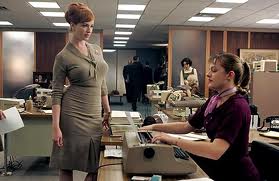
The year is 1969. Jane is a college educated secretary — yup, that was one of the major job choices for college educated women in the 60’s. It was my experience as someone who dropped out of college for several years in the mid 60’s and worked alongside women with secretaries with graduate degrees in English lit in corporate offices in San Francisco as we focused all our talents and skills on typing, filing and xeroxing. “Lot’s of fantasizing,” as Jane says.
A Fictional Character with 60’s authenticity
Jane is a fictional character — or perhaps a composite character — familiar to those of us who gathered in a women’s group to produce feminist radio at KDNA in St. Louis in 1969. Certainly the questions she raises throughout this narrative and the arc of her transformation from seeing her troubles as private to realizing their political and economic causes was an arc of transformation that many of us had experienced in consciousness-raising groups during those years in the late ’60s. Jane doesn’t want to die in the typing pool, she doesn’t want to build her life around a man, she craves a life that is an “independent triumph.”
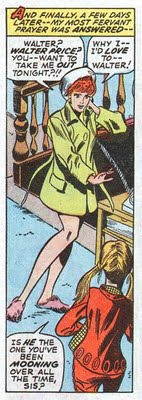 So Jane’s alienation from her job is reflected in her feelings about her marriage. She feels that while her husband has the opportunity to work his way up, that is unavailable to her and she is becoming, therefore, less interesting to him. He now has three times her earning power and she is expected to take care of all the domestic duties while being generally charming. Although she has built her life around his needs and concerns, hers have been ignored. So she is beginning to ask for changes. He rebels and leaves.
So Jane’s alienation from her job is reflected in her feelings about her marriage. She feels that while her husband has the opportunity to work his way up, that is unavailable to her and she is becoming, therefore, less interesting to him. He now has three times her earning power and she is expected to take care of all the domestic duties while being generally charming. Although she has built her life around his needs and concerns, hers have been ignored. So she is beginning to ask for changes. He rebels and leaves.
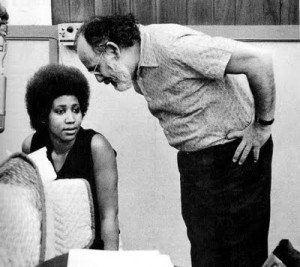
Popular Music – Manipulation or reflection?
At every stage of the way in Jane’s story music both proscribes and reflects her situation. It was popular music that inspired this program. As we — this women’s group — wrestled with our feelings about a genre of music we referred to in those years as “Cock Rock” we realized that most popular music carries messages about how to think and feel about relationships, life and love. So there is lots of music here from Ray Charles to Janis Joplin, from Aretha Franklin to the Rolling Stones, from Bonnit Raitt to Carly Simon and Nina Simone.
Lynn Phillips, KDNA, St. Louis
This 45 minute program was produced at KDNA in St. Louis in 1969. Lynn Phillips, author of the infamous feminist soap opera, Wind of Change, wrote this script based on conversations we had about my life and working experience. The production values are crude, but the expression here telescopes the listener into the thinking and feeling of that time among largely middle-class white women who were meeting in consciousness-raising groups all over the country to share their anger, doubts, concerns and dreams. As Jane says, “we had lots of questions, few answers, but we knew that we couldn’t solve this alone.”
Women’s Liberation and Black Women
Working class and Black women were also swept up in the new women’s liberation movement at that time, but their route could be different. The criticism leveled at the women’s liberation movement that it was largely white, ignores some major social and political realties of the time. Whether staking out their own place in the Black Power movement, or fighting their way into trade unions and then for equal pay, or demonstrating for reformation in the welfare policies, or controlling their bodies, women of all classes and races found their voices during this time.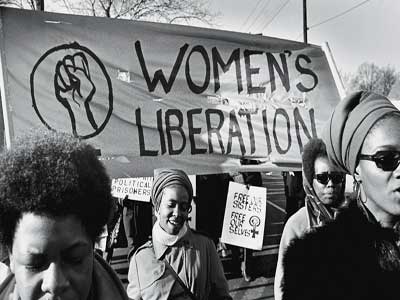
White and Black Music Fuel the Transformation
And as to the popular music of the day, the sixties was a critical period of whites discovering Black music. So for Jane, she’s listening to everything from the white rockers, to soul, r & b and Motown, along with the new white and black female vocalists who were speaking directly to our sense of double standard and desire for full recognition.
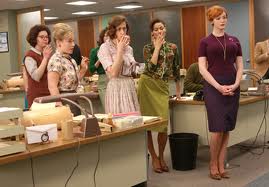
This is awesome! Well-done, emotional, thoughtful. Thank you.